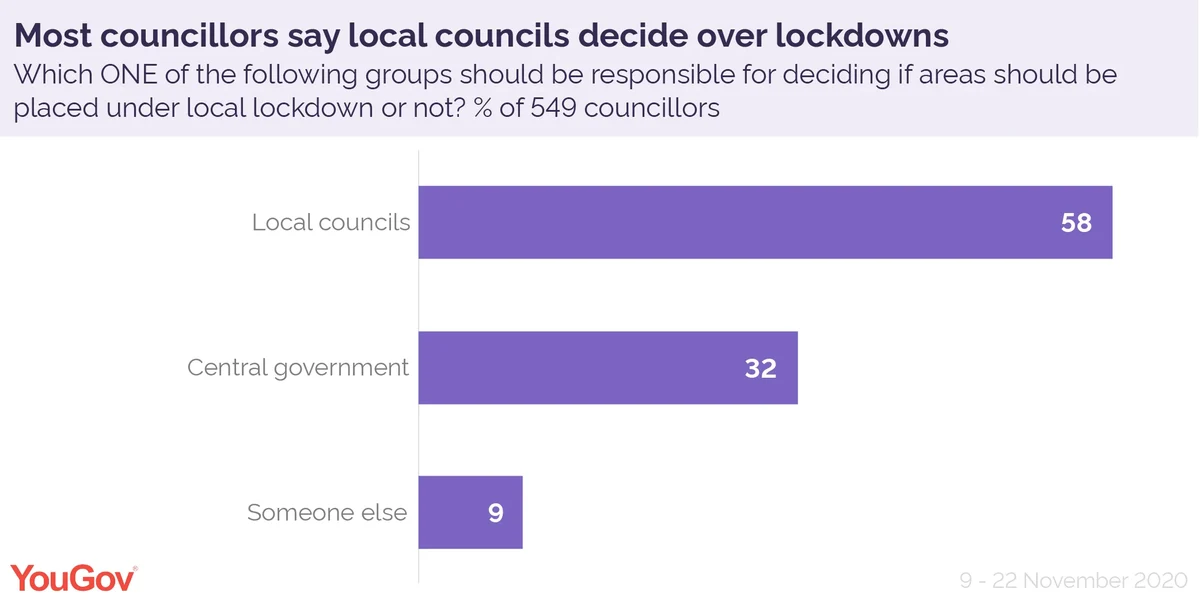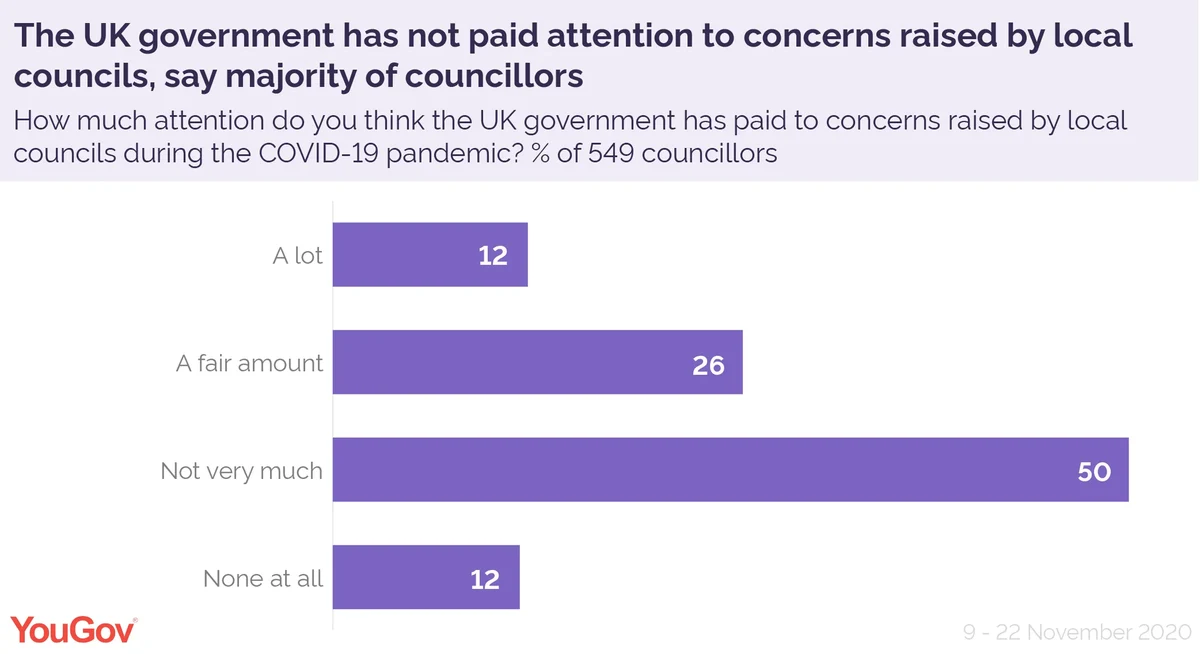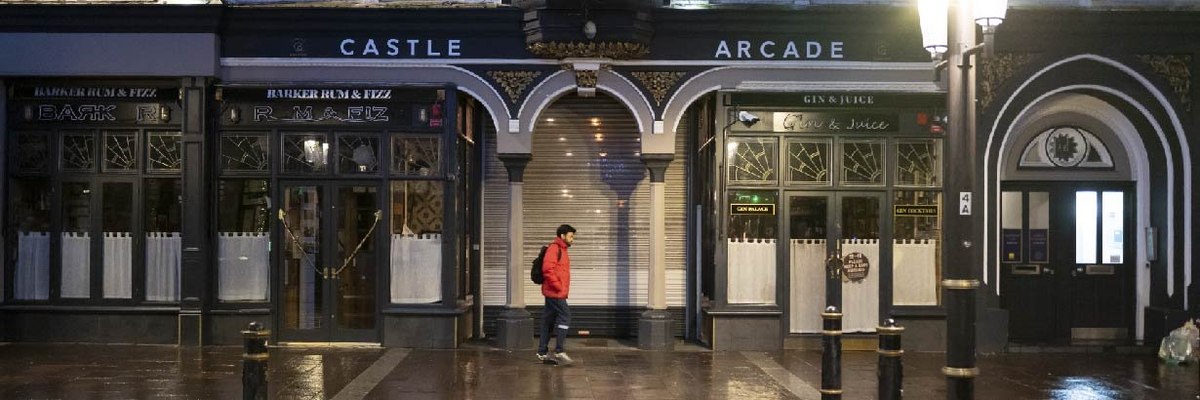Over half of local councillors say that councils should be responsible for deciding whether areas are placed in local lockdown or not
A new YouGov poll of 549 councillors across Britain shows that nearly three in five (58%) think responsibility for deciding about local lockdowns should lie with councils while a third (32%) believe it should rest with central government. A further 9% say someone else should decide.

Most (73%) Labour councillors think local councils should have the powers to decide over local lockdowns, while only one in seven (14%) say it should sit with central government.
However, Conservative councillors are split on the issue. Half (50%) favour local councils holding the responsibility with only slightly fewer (46%) choosing central government.
Many councillors say the UK government has not paid attention to their concerns
Half (50%) of councillors believe the government has not paid enough attention to the concerns of local councils during the pandemic, while one in eight (12%) say it’s not paid any attention at all to their anxieties.
In contrast, a quarter (26%) feel the government has been fairly attentive, while 12% said their concerns had received a lot of attention.
Again, Labour and Conservative councillors differ notably in their views. While nine in ten (89%) Labour councillors feel the government had not paid enough attention to their concerns, this view is only shared by a quarter of Conservatives (24%). In contrast, three quarters (75%) of Tory councillors believe their concerns have received a lot (27%) or a fair amount (28%) of attention while just one in ten (10%) of Labour councillors feel the same (2% a lot, 8% a fair amount).

The research also found that a majority (56%) of councillors feel supported by the government during the pandemic to either some (36%) or a great (20%) extent. About two in five (43%) only feel supported to a small extent (33%) or not at all (10%).









